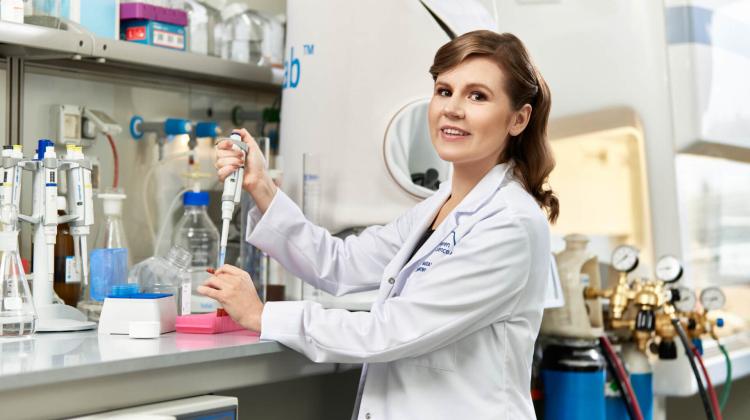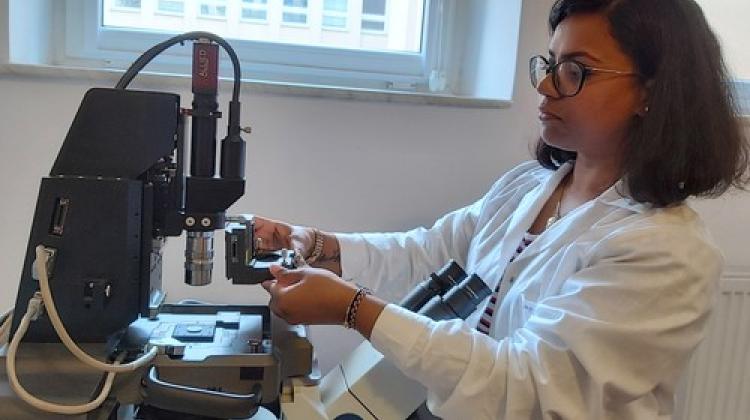Expert: Alternative cancer diets promote malnutrition; it is scoring own goal
 PAP © 2017 / Tytus Żmijewski
PAP © 2017 / Tytus Żmijewski
Alternative cancer diets promote malnutrition and cachexia, which is a cancer patient scoring own goal" - told PAP Dr. Aleksandra Kapała, MD, in a conversation about alternative diets and unconventional supplementation in cancer patients.
"Right now we have a well-functioning field of knowledge called clinical nutrition, and this field describes everything that a patient needs in terms of nutrition during cancer treatment" - said Dr. Aleksandra Kapała from the Head and Neck Cancer Clinic, Maria Skłodowska-Curie Institute of Oncology in Warsaw, author of the book "Dieta w chorobie nowotworowej" ("Diet in Cancer").
The expert explained that cancer patients require all nutrients in proper proportions, including proteins, carbohydrates, fats, vitamins, minerals, and water. "All this has to be well thought out, adapted to the type of disease and its severity, the type of treatment, and the patient\'s prognosis" - she said.
Meanwhile, according to the expert, in all alternative diets, referring to unconventional medicinal methods, "either something is missing or there is too much of something". Dr. Kapała explained that this leads to deficiencies or excesses of certain substances in the body. "Such dangerous diets promote malnutrition, cachexia, which is a cancer patient scoring own goal".
According to the doctor the methods popular among cancer patients that are in fact dangerous to their health include Gerson\'s diet (that involves "detoxification of the body", consumption of fruit and vegetable juice and coffee enema), and other diets that consist in excluding entire food groups. "When it comes to such dangerous supplementations, the most dangerous of these include the use of amigdaline and high dose vitamin C treatment, very popular at the moment" - added Kapała.
She also warned that unconventional diets could prevent conventional drugs from working. "Interactions of such substances with our cytostatics or modern targeted drugs that we use in oncology are not known" - she explained. In her opinion this could translate into increased toxicity of treatment, or - as she said - "the development of adverse effects such as renal failure, diarrhoea, further weight loss, worsening of all mucosal reactions".
Dr. Aleksandra Kapała said that nutrition in cancer treatment is a very individual thing. "There is no single prescription we could offer to anyone" - she assured.
She also expressed the opinion that diet depends on whether the cancer and its treatment directly affect the digestive tract. "In such case, the patients usually needs special support, special diet" - she explained.
In the remaining cases, doctors order a diet that is closest to a normal, healthy diet. "On the other hand, one must be aware that a patient who, for example, has an irradiated pelvis or abdominal cavity due to a tumour located in that area, will benefit from restrictive diets, but under the supervision of someone who knows what they are doing with the patient and avoids promoting malnutrition and cachexia" - she concluded.
PAP - Science and Scholarship in Poland
mni/ zbw/ zan/ kap/
tr. RL
Przed dodaniem komentarza prosimy o zapoznanie z Regulaminem forum serwisu Nauka w Polsce.


















